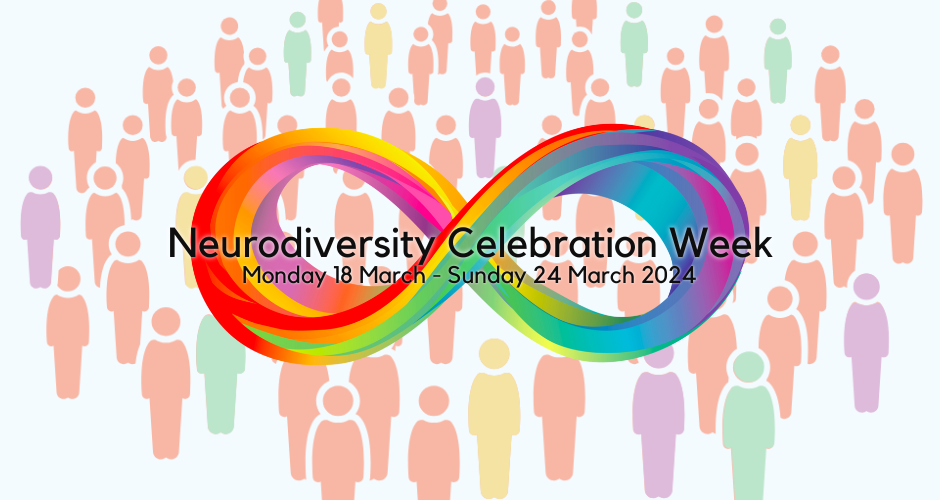Neurodiversity Celebration Week - Liz's story

For Neurodiversity Celebration Week, I spoke to our colleague Liz about her own experiences of being autistic and how it shapes her work and interactions with others.
As well as giving care and support in Calderdale, Liz plays a pivotal role in our Co-op's path forward as a worker member of Equal Care’s Purpose Circle and is currently working on Equal Care’s policies and procedures around health and safety in our care and support teams.
What do you wish people knew about your experience of being autistic?
When there’s more than one possible answer to a solution, this causes extreme burnout to not being able to focus on things in front of me, hear or see- my speech can even get muddled. When I ask for Clarification it is not to hurt anyone, but to educate and help myself. A lot of people can take asking questions as rude but without asking them I suffer.
My head is a constant checklist of things that compartments everything from how I get told to act to how different emotions should be. Sometimes that is tiring: that my own identity very often gets dictated on how I should be. I spend most of my life exhausted, trying to keep focused on social expectations, and people can forget all the things that also impact that. I then get overloaded and need to process that in ways that I have learnt to cope. My coping skills are adapted to me and aren’t intended to hurt anyone in the process and it can get upsetting that a lot of people can make you feel like you’re an outcast by not understanding the impact you’re having.
There is also the loss of hearing, tunnel vision, slurred speech and things like that are massively difficult to keep under control and sometimes when this hits I just don’t understand what certain things mean or I can’t explain or articulate what I want either. It feels like a snow globe being shaken up inside my brain.
How do you think we can make workplaces more comfortable for autistic people?
Encourage education on individual people as autism is not the same for everyone. Open, straightforward meanings in communication can help massively as hidden meanings are too stressful to decipher when there are so many possibilities of something.
Also, it would help me personally if people understood that there is literally no hidden meaning to what I say! People can get caught up on hidden meanings and then it leaves me feeling like I’m speaking a foreign language. Especially when people get upset over it in the process when I’m not trying to hurt anyone.
What's something you really enjoy doing that you think others might not understand because you're autistic?
Listening to music! I love to listen to music for over 8 hours a day. This physically gives me sensations that counteract other sensations - even a moving car can cause problems with tunnel vision or hearing - although people say I’m rude for keeping my headphones on a lot while I’m with company. Sometimes I feel I spend my whole life white-knuckling burnout. I also enjoy smells that give me the same feeling as the music does. It almost feels like a little top-up before the burnout hits.
What's one thing you hope people learn from Neurodiversity Celebration Week?
There are challenges that can initially seem selfish or an attack when asking and trying to understand is half the battle for others. Asking and learning about what I put in place for myself to help manage my life helps a lot more than people think.
Looking beyond Neurodiversity Celebration Week, what ongoing efforts do you think are necessary to continue challenging stereotypes and fostering inclusivity for neurodivergent individuals?
Embracing uniqueness and trying to empower that same uniqueness.
Changes in routine can cause me to need to rethink about the tickboxes and when I don’t have enough time it can cause me to panic. A change in routine isn’t just about control.
What do you believe are some common misconceptions people have about neurodiverse people?
People sometimes think because we’re different that we’re selfish, incapable or rude. Just asking why or trying to understand is half the battle. We spend our lives with plenty of people assuming or telling us we can’t do things that we can but believe we can’t. There's a brilliant video that was released for World Down Syndrome Day earlier in the month that articulates this perfectly for me (see video below)
Another common misconception is that we’re rude or selfish just because the way we express it is different. “Think before you speak” - I hate this saying with a passion! What is the definition of that? If I’m not hurting anyone, not name-calling or anything like that then why am I being told to shut up and be punished for it? If it’s true, it should be encouraged. Who really needs to think before they speak?
Also just because I’m not looking at you, doesn’t mean I’m not listening! Sometimes I need to focus on something to be able to use another sense better. So if I’m staring at something, it’s so I can focus my hearing on what you’re saying - it’s completely the opposite of what people would assume. Sometimes when the burnout hits, my senses go too so have to double down on concentrating on what someone is saying.
How can we improve support and understanding for neurodivergent care workers within the care industry?
Encourage open straightforward communication and have patience with the different ways that others learn. For me, learning can be difficult when it’s not muscle memory but I know I can do it. The first part of learning is a massive burnout for me and I can feel equally embarrassed about it.
How do you think organizations can create more inclusive environments for neurodivergent care workers?
Identify struggles and encourage ways to manage them. Encouraging staff to be educated on workplace struggles and impacts. When the confusion hits, I feel I can’t function. I know what my needs are to help manage my problems but respect for this struggle can also go a long way to helping me with this. Sometimes a clear plan to stay focused is invaluable.
Also encouraging people to ask me questions if they don’t understand so we can talk about it. It’s not something that should be an embarrassing secret and asking is only going to help both of us.
Have you found any unique strengths or approaches in your care work that you attribute to being autistic?
I believe I have a natural ability to problem-solve due to the tickboxes of possible outcomes I’ve learnt over the years. I like and find it fun to find solutions and it makes me feel happy so it’s something I feel passionate about too!
How do you feel Equal Care Co-op currently supports neurodivergent individuals, and what additional measures or support do you think we could implement to better accommodate and empower neurodivergent people?
Equal Care is very understanding and encourages me to be open and in turn, this has been immensely positive and helped me grow in my work roles.
Sometimes without plans, my head can feel like a shaken snow globe so well-structured plans can really help take some of that stress away. Last-minute meetings, changes of times, changes of plans etc are extremely difficult for me and cause a lot of anxiety. I understand a lot of this I have to manage myself, but if more planned guidelines were in place around expectations with some things, that would help immensely.
Learn more about Neurodiversity Celebration Week at neurodiversityweek.com

